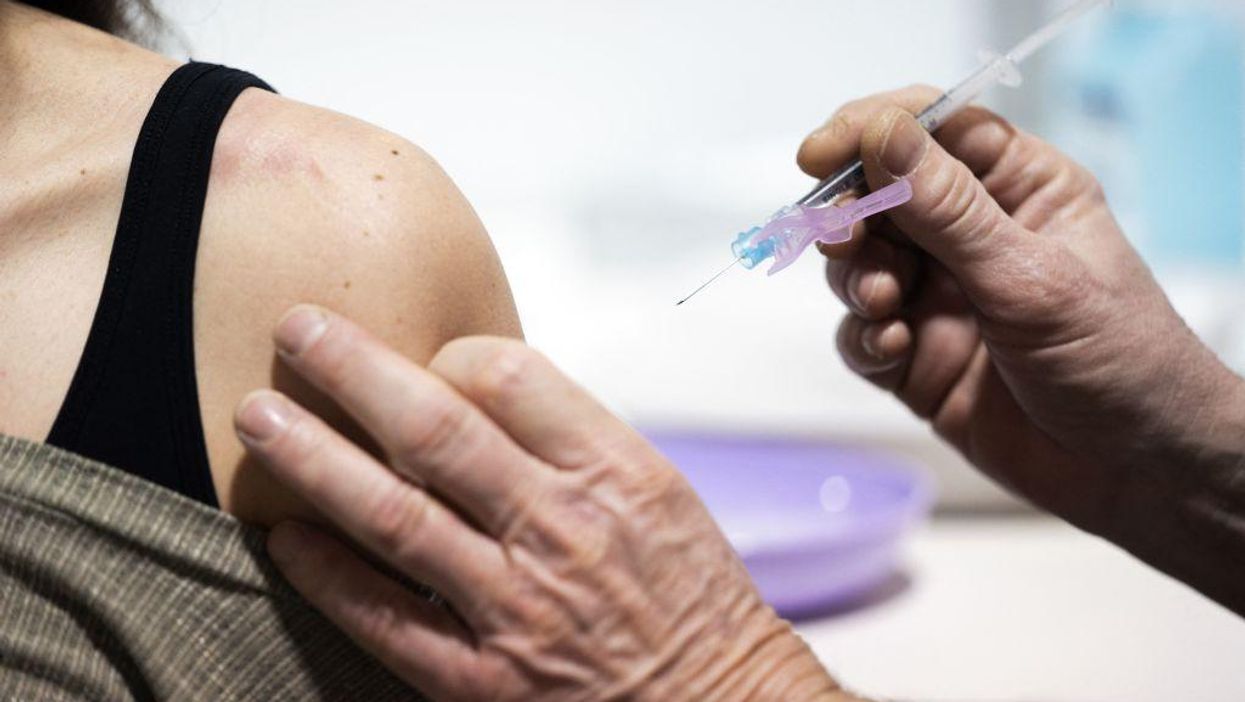
JEROEN JUMELET/ANP/AFP via Getty Images

Israeli researchers have found that a fourth mRNA coronavirus vaccine dose is safe but only "somewhat efficacious" against preventing infection from the COVID-19 Omicron variant.
The study, published Wednesday in the New England Journal of Medicine, assessed the efficacy of a fourth dose of either the Pfizer or Moderna vaccines in healthy young health care workers at the Sheba Medical Center. Interim results showed that a fourth shot "is immunogenic, safe, and somewhat efficacious (primarily against symptomatic disease)."
"A comparison of the initial response to the fourth dose with the peak response to a third dose did not show substantial differences in humoral response or in levels of Omicron-specific neutralizing antibodies," the study authors concluded. They suggested that a fourth shot "may have only marginal benefits" when given to healthy young people.
The study did not asses the efficacy of a fourth dose among older and more vulnerable populations.
“Among the approximate 600 participants, 270 of whom received either a fourth dose of the Pfizer vaccine or Moderna vaccine, we found no differences, both in terms of IgG antibody levels and in terms of neutralizing antibody levels, which reached a level similar to that measured a month after the third dose was administered,” lead study author Prof. Gili Regev-Yochay told the Jerusalem Post.
She said that for both the Pfizer and Moderna vaccines, health care workers who received a fourth dose only had a slightly lower infection rate than those in the control group.
“However, it should be emphasized that the third dose is extremely important for anyone who has not yet contracted COVID-19, and the fourth dose is most likely important for populations with risk factors for which a fourth vaccine would protect from serious illness," Regev-Yochay said.
“This study is added to a series of studies led by Sheba with the aim of providing a scientific basis for managing a pandemic that has wreaked havoc around the globe,” she concluded.
“Thanks to the cohort at Sheba and the plethora of data we have accumulated since the beginning of the pandemic, we continue to lead international studies which shed light on the behavior of the virus and the effectiveness of vaccines and serve decision makers in determining health policy in Israel and around the world.”
Pfizer and BioNTech on Wednesday asked the U.S. Food and Drug Administration to grant an emergency use authorization for a fourth COVID-19 shot for adults age 65 and older who have already received a booster vaccine dose.
In a press release statement, the companies cited the Sheba Medical Center study, as well as additional data from Israel that showed evidence that an additional mRNA booster shot lowered rates of confirmed infections and severe illness.
"An analysis of Israeli Ministry of Health records was conducted for over 1.1 million adults 60 years of age and older who had no known history of SARS-CoV-2 infection and were eligible for an additional (fourth dose) booster. These data showed rates of confirmed infections were 2 times lower and rates of severe illness were 4 times lower among individuals who received an additional booster dose of the Pfizer-BioNTech COVID-19 Vaccine administered at least four months after an initial booster (third) dose compared to those who received only one booster dose," the release said.